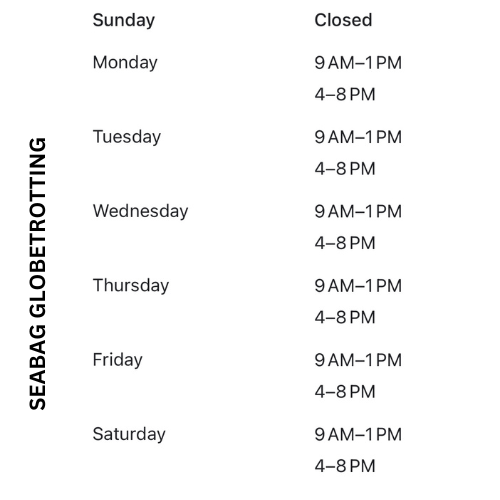As a military spouse, I have been blessed with the opportunity to live in Naples, Italy. My family and I have been living in Naples, Italy for almost a year as a military family.

Living in Naples, Italy as a foreigner has been an amazing experience. From indulging in local cuisines to relaxing under the Sorrento sun in the summertime. I LOVE living in Italy!
I must admit that when we first arrived in Naples, Italy we witnessed and experienced A LOT of cultural differences than what we were accustomed to in the United States.
In this blog, you are going to learn all about the cultural shocks, differences, and more that come with being a military spouse and foreigner living in Italy.
After learning about these 19 Shocking Cultural Traits About Italy you will be up to speed with some of the cultural norms here in Italy before visiting or making the big move to Italy.
This post is all about Living In Italy: 19 Shocking Cultural Traits About Italy
19 Shocking Cultural Traits About Italy
1. Restaurant’s Hours of Operation
Whether you are visiting Italy or moving out here, you have to mentally adjust to business hours of operation. Similar to Spain’s siesta, the Italians observe riposo every day. Ripsoso means ‘rest’ in Italian and at midday, the Italians will close down restaurants and stores to rest. Whether the locals go home to eat lunch or take an afternoon nap, be prepared and plan your day accordingly to ensure your store and restaurants are open when you need them.
2. Restaurant’s Wait Times
Along with adjusted hours of operation, it is completely normal to wait an extended time to be served at a restaurant. Typically when you are visiting a restaurant in Italy, you will probably notice that there are only one, sometimes two, people waiting tables. Since a lot of restaurants do not have a large wait staff, it can take a while to be served.
Also, the cultural norm in Italy when going out to eat is that you probably want to enjoy a meal with your family. This cultural norm is another reason why wait times are longer at restaurants. Since living in Italy, while dining out I have witnessed that after the first two courses, the locals will take a smoke break before coming back in to finish the rest of their meal. Bottom line, enjoy your time with your family and have patience.
3. Tipping
In the United States, the tipping culture has a grip on us. No matter how many debates we have, we are still a country that requires tipping. Contrary to the United States, when you go out to eat in Italy you are not required to tip. This no-tipping standard also carries over to other services like catching a taxi, getting car services, etc. Tipping is considered a foreign thing here in Italy. If you decide to leave a tip, do not be surprised if a local looks at you confused wondering why you are overpaying.
4. Paying For Water At Restaurants
As a U.S. citizen when you go to a restaurant it is a norm to expect free water. However, in Italy do not be surprised if you are charged for a bottle of water when dining out. Although you are charged for water, you are provided a two-liter bottle for the table. Since living in Italy, it has been an adjustment to pay for water at restaurants. However, I will say that once you get used to getting bottled water you’ll start to question why you ever accepted tap water as a standard.
5. Paying to Use the Bathroom
In Italy, you are sometimes charged to use the public restrooms. This is not just an Italian norm but other countries within Europe require payment to use the restroom. You can typically expect to be charged to use the restroom at train stations and other high-traffic areas. When visiting Italy or when you start living in Italy, I would highly recommend always keeping a couple of euro coins in your wallet to just in case you have to use the restroom.
6. Kids Enter and Eat For Free
One of the many amazing things about living in Italy is the appreciation for families and mothers. There are several ways that the Italians make life easier for families while visiting or if you are living in Italy. From priority when boarding elevators or Italians giving up their seats on public transportation. The Italians acknowledge how challenging parenthood can be and they try their best to make life easier.
When visiting certain places the Italians will not charge children for entry or a meal. This depends on their age. My daughter is two years old and since living in Italy we have been able to enjoy restaurants and attractions without being charged for her. When taking the train to visit other cities in Italy, we typically do not pay for our daughter’s train ticket.
7. Drinking and Driving Limits
In the year 2024, drinking and driving is becoming more and more of a taboo thing to do. In Italy, drinking and driving is something that is not tolerated and the acceptable drinking and driving limit is 0.05. If you’re planning on enjoying a night out in Italy, plan on taking a taxi to avoid breaking any laws.
8. You Can Shop For Anything At the Shopping Malls
One of the many things I love about living in Italy is the shopping mall culture. At the shopping malls in Italy, you can shop for everything. Groceries, clothes, shoes, furniture, and electronics. Shopping malls in Italy are one-stop shops where you can pick up everything you need in the same place.
9. Fashion Culture In Italy
It should come as no surprise that the country of Italy is deeply connected to the fashion industry. Italy is the birthplace of many luxury fashion brands like Versace, Fendi, Prada, Gucci, and many more. Before living in Italy, I thought the fashion culture was just a thing in Milan. However, since moving to Naples, Italy it is abundantly clear that the entire country of Italy takes fashion very seriously.
I am still amazed seeing the local Italians going to cafes or even going to the mall dressed in designer from head to toe. It does not matter whether the locals are going to an exaggerated event or running basic errands, you will rarely see an Italian not well dressed. Since living in Italy, this fashion culture bug has rubbed off on me and I put more effort into what I am wearing now.
10. Floor Numbering In Buildings
In the United States, the ground floor that people enter into is always numbered ‘1’ and the floors above are numbered in sequential order. However, in Italy, the ground floor is typically numbered ‘0.’ For me, this can be confusing when entering an apartment building that has a foyer with a small set of stairs. I would always be confused about what floor I was on and how to get back to the ground floor. It takes some time to get adjusted and I still get confused by the floor numbering to this day.
11. Eggs Are Not Stored In the Refrigerators
When my family and I started living in Italy, it shocked us that in Italy you are not supposed to put eggs in the refrigerator. The reason for this is that Italian eggs are not washed before packaging. Italian eggs have an outer protective layer that helps them to remain fresh longer without spoiling. Because of the protective layer, the eggs in Italy can last for over a week without being refrigerated.
12. Dates Are Written Different
My first few times going to the grocery store in Italy, I was confused by the expiration dates on products. When I bought eggs for the first time, the way the dates were written I thought “Omg the food is already spoiled.” However, I realized that in Italy, and most of Europe, the dates are written opposite to how they are written in the United States. In the United States, we write dates as (Month)/(Day)/ (Year). However, in Italy, dates are written (Day)/(Month)/(Year).
13. Recycling System
One of the many things I love about living in Italy is their commitment to doing their part to help the planet. The Italian recycling system reflects their commitment. If you are moving to Italy in the future please know that you are required by law to recycle. The Italian recycling program is very thorough and ensures all individuals living in the country, recycle rubbish in the appropriate bin. Since I started living in Italy as a foreigner, I currently maintain five different trash bins in my house to ensure my family is properly recycling.
14. Not Placing Change In Your Hand
As an American, the cultural norm when checking out is to place your change in your hand. The same cultural norm stands when you are purchasing something and you ask for a receipt. The norm in America is to place the receipt in your hand. However, when you purchase things in Italy, the cultural norm is to place your change or receipt on the counter. Initially, it can seem and feel rude but just know that the locals mean no harm.
15. Paying For Bags At Stores
As mentioned previously, the Italians are committed to doing their part to protect and take care of the planet. Another way the Italians maintain their commitment to the planet is by not providing shopping bags at stores. Since the stores do not provide free bags, you are responsible for bringing reusable bags when shopping or paying a small fee to purchase a bag at the store. This pay-for-bag standard happens at both grocery stores and clothing stores.
16. Paying to Use Grocery Carts
Along with paying for a bag when shopping, when you go to the grocery store you have to pay to use grocery carts. Similar to Aldi and Lidl, all grocery stores in Italy require 1-2 euros to use a grocery cart. The good thing about this cultural norm is that once you have finished using the cart, you do get your money back.
17. Driving In Italy
My family and I have been living in Italy for almost a year now. One of the things that has frustrated us since we began living in Italy is the hectic chaotic drinking practices. Driving in Italy feels like there are no traffic rules at all. People speed like crazy and drive as if they are in a game of Tetris. Since living in Italy, I have seen several people driving on the curb to bypass traffic and I’ve even seen people driving for an extended period in reverse on the roads. If you are planning on driving in Italy, especially Naples, Italy, brace yourself.
18. Chain Restaurants Menu Differences
Sometimes when you’re away from home for an extended time, you seek comfort foods that remind you of home. However, if you’re moving to Italy soon, do not count on getting your favorite meal from a familiar fast food joint. As you can imagine, every country has its own personal taste when it comes to food. What we love and enjoy in the United States may not be a favorite in another country. For example, instead of bacon on burgers, the Italians use prosciutto. Another example is, for breakfast instead of a sausage biscuit or a breakfast burrito, your options will be pastries in Italy.
Italy soon, do not count on getting your favorite meal from a familiar fast food joint. As you can imagine, every country has its own personal taste when it comes to food. What we love and enjoy in the United States may not be a favorite in another country. For example, instead of bacon on burgers, the Italians use prosciutto. Another example is, for breakfast instead of a sausage biscuit or a breakfast burrito, your options will be pastries in Italy.
19. Coffee Standards
 If you are a coffee lover and can’t start your day without it, then be prepared to start your day with significantly less coffee in your mug. In the United States, we are accustomed to everything being super-sized. However, in a lot of European countries especially Italy, the coffee norm is significantly smaller. Yes, Italy does serve some specialty coffee drinks but the normal Italian coffee is an espresso shot. If you brew your coffee at home with a moka pot you may get a full cup of coffee. Also, coffee is not served with sweet sugary creamers but instead, you will be offered a packet of sugar.
If you are a coffee lover and can’t start your day without it, then be prepared to start your day with significantly less coffee in your mug. In the United States, we are accustomed to everything being super-sized. However, in a lot of European countries especially Italy, the coffee norm is significantly smaller. Yes, Italy does serve some specialty coffee drinks but the normal Italian coffee is an espresso shot. If you brew your coffee at home with a moka pot you may get a full cup of coffee. Also, coffee is not served with sweet sugary creamers but instead, you will be offered a packet of sugar.